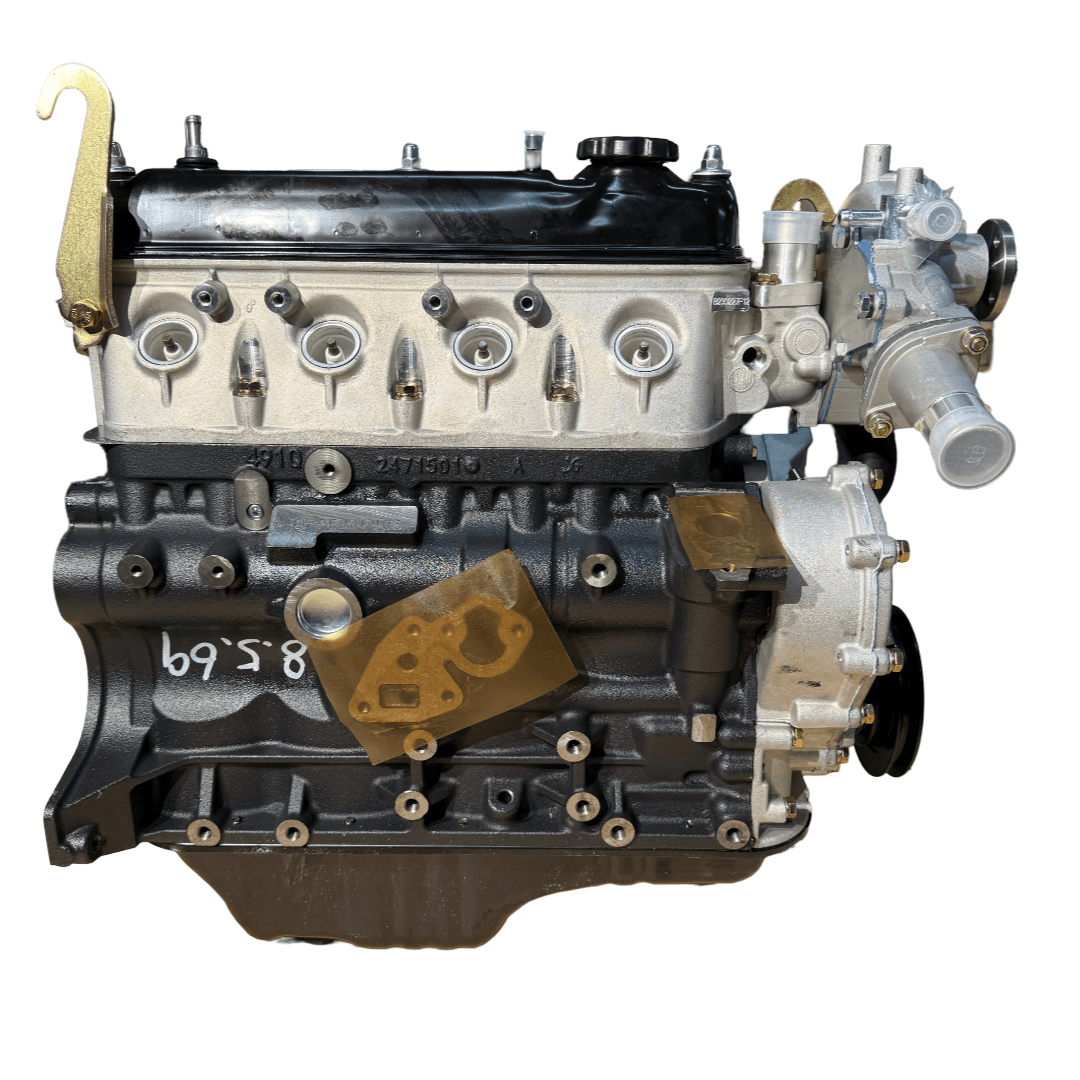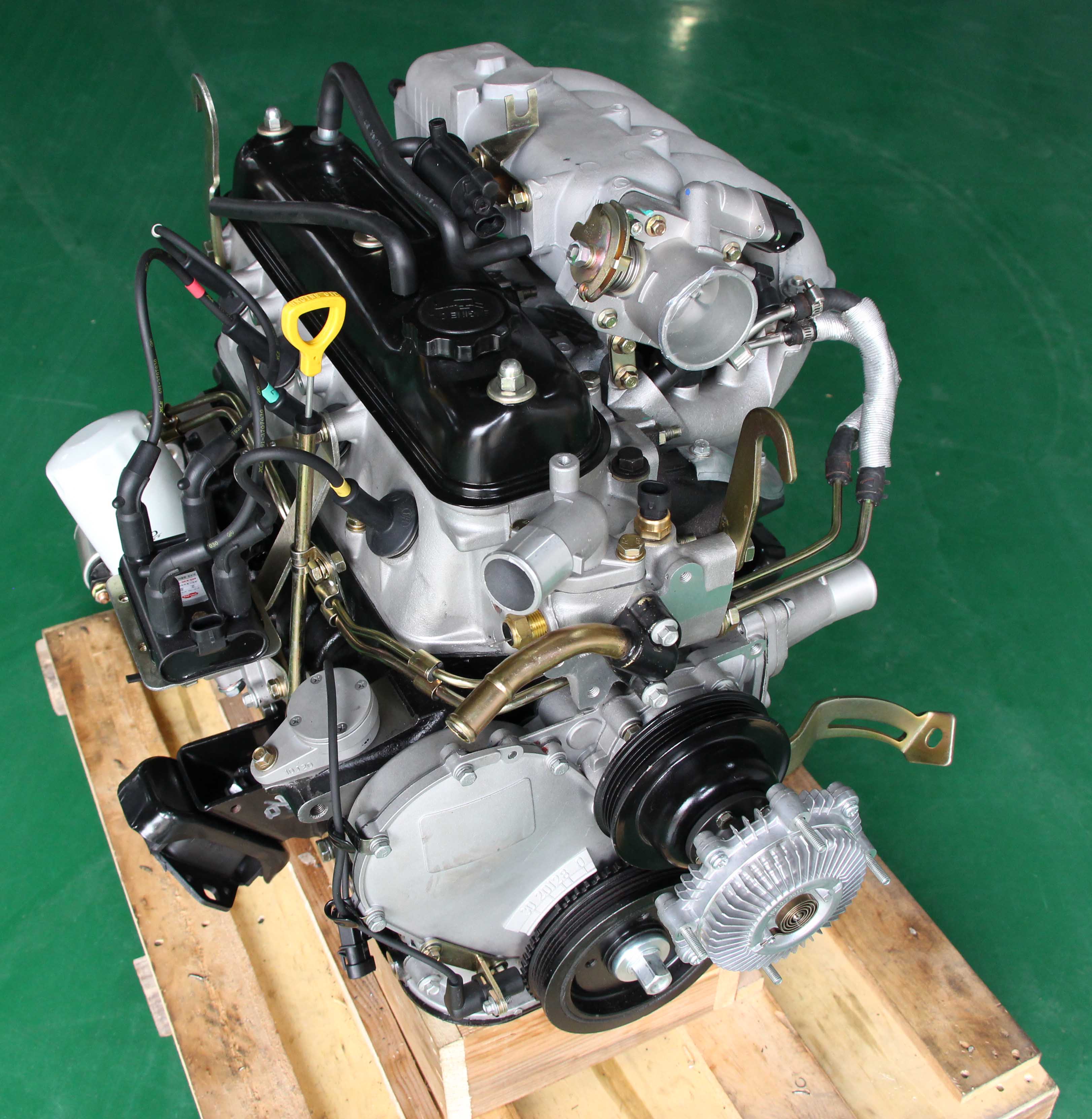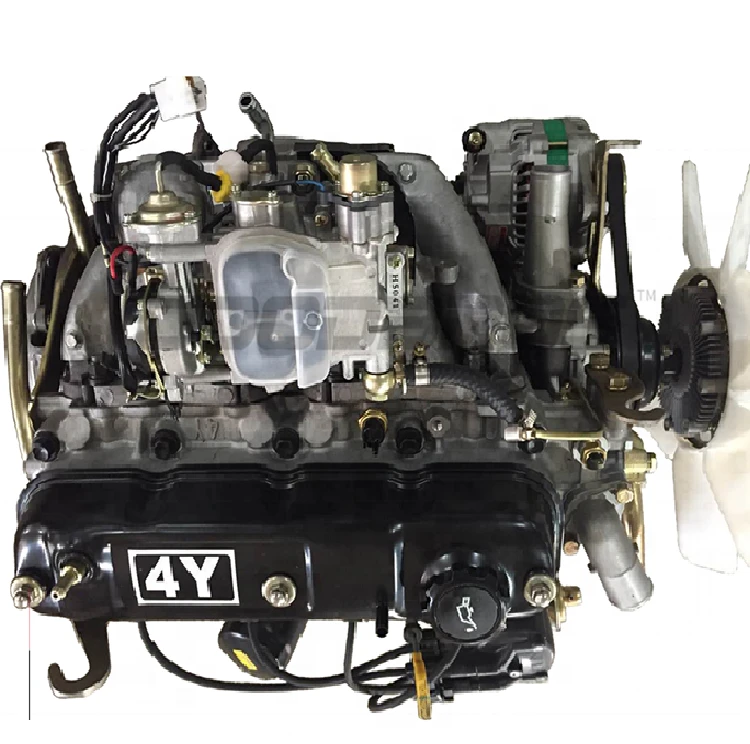Top Modifications to Enhance the Performance of Your 4Y Engine
Checking Out the Numerous Sorts Of Engine: Which One Fits Your Needs?
In the pursuit to figure out one of the most appropriate engine type for your details needs, it is important to review the distinct features and benefits of each choice offered. Inner combustion engines remain to dominate due to their integrity, while electrical engines are gaining traction for their sustainability. Hybrid engines supply a flexible concession, and diesel engines stand apart for their power in requiring applications. Additionally, alternative fuel engines existing innovative services, albeit with specific constraints. Understanding your concerns will certainly be crucial in this decision-making procedure, leading to an expedition of elements that may influence your option.

Internal Burning Engines
Inner burning engines (ICEs) are the foundation of modern-day transport, powering a huge array of automobiles from autos to planes. These engines operate the principle of converting gas into power with a collection of controlled surges within a combustion chamber. The most usual sorts of ICEs consist of gas engines, diesel motor, and rotary engines, each made to satisfy details performance and performance demands.
Gasoline engines generally utilize spark ignition, while diesel engines count on compression ignition, leading to distinctive distinctions in fuel effectiveness and power outcome (4y engine). Rotating engines, or Wankel engines, offer a portable design and smooth operation, but are less commonly utilized in mainstream applications
ICEs have actually gone through considerable innovations in modern technology, including the introduction of turbocharging and gas shot systems, which enhance total effectiveness and efficiency. Regardless of their performance improvements, ICEs deal with enhancing scrutiny due to their environmental influence, particularly regarding greenhouse gas discharges. As the automobile industry progresses, the future of ICEs continues to be a topic of discussion, balancing efficiency, performance, and environmental factors to consider. Nonetheless, they remain to play a critical duty in worldwide transportation facilities.
Electric Engines
As issues about ecological sustainability and nonrenewable fuel source dependency grow, electrical engines have actually become an engaging alternative to interior burning engines. These engines make use of electrical motors powered by batteries or gas cells, giving a cleaner and more efficient motive powers.
Among the main benefits of electrical engines is their reduced discharges. Unlike traditional engines that shed nonrenewable fuel sources, electric engines produce no tailpipe emissions, considerably decreasing air contamination and adding to boosted public health. Additionally, the effectiveness of electric motors often goes beyond that of interior burning engines, transforming a better proportion of power from the source of power right into functional energy for movement.
Electric engines are likewise remarkable for their quiet procedure, making them ideal for urban atmospheres. 4y engine. The simplicity of their style results in less relocating components, which can lead to minimized maintenance expenses and enhanced integrity with time
Nevertheless, obstacles stay, consisting of battery manufacturing effects, charging infrastructure, and variety limitations. In spite of these hurdles, the expanding investment in electrical car innovation and renewable resource sources points towards a promising future for electrical engines, positioned to play a critical role in the transition toward sustainable transport.
Crossbreed Engines
Mixing the advantages of both typical and electric inner combustion engines, hybrid engines stand for a flexible solution in the quest for effective and lasting transportation. These engines incorporate a gasoline or diesel engine with an electrical motor, permitting boosted fuel performance and decreased discharges compared to standard lorries.
Hybrid engines run in numerous modes, using the electrical motor for low-speed driving and the inner combustion engine for higher speeds or when more power is required. This dynamic operation not only improves fuel economic situation but additionally adds to a smoother driving experience. Regenerative stopping is an additional critical attribute, recording energy typically shed during braking and rerouting it to recharge the battery.

As customers progressively focus on eco-friendliness, crossbreed engines stick out as a practical selection, providing a reliable equilibrium of efficiency, effectiveness, and environmental duty. This versatility makes them appropriate for metropolitan travelling and long-distance traveling alike.
Diesel Engines
Effectiveness and power are trademarks of diesel engines, which have long been preferred for their robustness and gas economy. These engines operate the principle of compression ignition, where air is pressed to a high temperature prior to fuel is injected, igniting it without the requirement for ignition system. This process allows diesel motor to accomplish higher thermal effectiveness compared to gasoline engines, converting into better gas gas mileage and reduced co2 emissions.
Diesel motor are particularly appropriate for durable applications such as trucks, buses, and commercial machinery, where torque and sturdiness are critical. Their layout generally consists of more powerful components to withstand the greater pressures generated during procedure, leading to longer life span and reduced upkeep prices.

Alternate Gas Engines
While diesel motor have lengthy dominated the landscape of heavy-duty source of power, alternate gas engines are obtaining traction as sensible choices for a more lasting future. These engines utilize a range of gas, such as pressed all-natural gas (CNG), hydrogen, propane, and ethanol, intending to decrease greenhouse gas discharges and reliance on fossil fuels.
One considerable benefit of alternate fuel engines is their potential to reduced carbon footprints. CNG engines discharge fewer contaminants contrasted to conventional diesel engines, making them suitable for city transit systems and fleets looking for to improve air quality. Ethanol, originated from biomass, not only minimizes emissions but likewise sustains farming economies.
Hydrogen gas cells represent an advanced advancement in this world, using zero-emission power with a chain reaction between hydrogen and oxygen. However, obstacles such as infrastructure advancement and production costs continue to be obstacles to This Site widespread adoption - more tips here 4y engine.
Final Thought
To conclude, picking the proper engine type demands careful consideration of specific needs and preferences. Inner combustion engines offer dependability, while electric engines focus on sustainability and reduced maintenance. Crossbreed engines incorporate the advantages of both, boosting performance, whereas diesel engines give superior power and torque for durable applications. Alternative fuel engines present eco-friendly alternatives, albeit with prospective framework obstacles. Inevitably, a detailed analysis of driving habits and environmental values will certainly promote a notified decision relating to engine selection.
Crossbreed engines provide a versatile compromise, and diesel engines stand out for their power in requiring applications. The most usual kinds of ICEs include fuel engines, diesel engines, and rotary engines, each created to fulfill specific performance and efficiency requirements.
Unlike traditional engines that shed fossil gas, electric engines create no tailpipe exhausts, considerably reducing air contamination and contributing to boosted public health.Crossbreed engines operate in a number of settings, utilizing the electric motor for low-speed driving and the interior combustion engine for greater speeds or when more power is required. Crossbreed engines incorporate the benefits of both, boosting effectiveness, whereas diesel engines provide superior power and torque for heavy-duty applications.